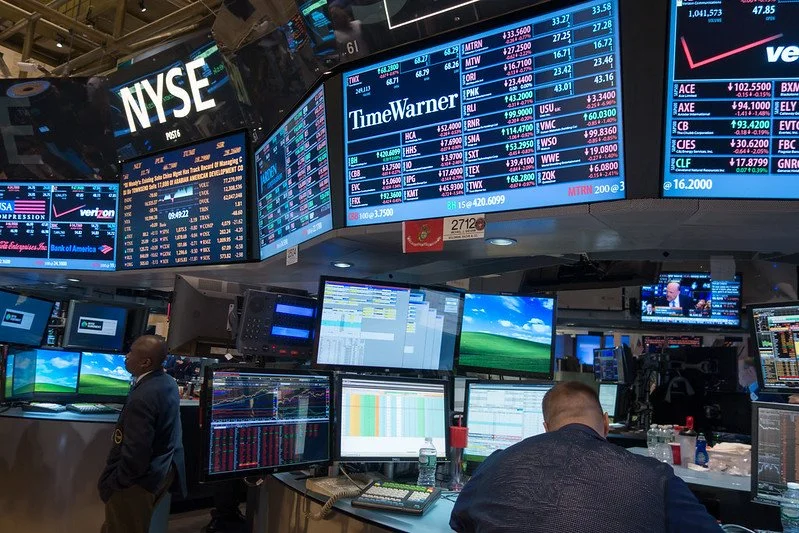European Markets Under Pressure as Soaring AI Valuations Test Investor Nerves
European Markets Under Pressure as Soaring AI Valuations Test Investor Nerves
By
David Goldfarb
Last updated:
November 14, 2025
First Published:
November 30, 2025

Photo: New Stardom
European Markets Set for a Soft Open
European stocks are positioned to edge lower on Friday, with investor sentiment rattled by renewed anxiety over overheated artificial intelligence valuations and fresh signs of strain across the global economy.
Early futures readings painted a mixed but cautious outlook:
- FTSE 100 futures slipped about 0.5%, signalling weakness across UK blue chips.
- Germany’s DAX futures hovered 0.2% higher, reflecting some resilience among industrial names.
- France’s CAC 40 futures fell 0.4%.
- Swiss SMI futures dropped 0.8%, marking the sharpest decline among major European indices.
Broader European sentiment remains fragile as traders weigh concerns about global growth, tightening financial conditions and sector-specific overvaluations—especially in technology.
Global Growth Worries Intensify
Fresh economic data from China added another layer of caution. Beijing reported that fixed-asset investment contracted 1.7% in the first ten months of the year, marking one of the steepest declines since the pandemic period.
Additional indicators reinforced the slowdown:
- Retail sales grew only 2.9%, softening for the fifth straight month.
- Industrial output expanded 4.9%, down sharply from 6.5% in September.
The slump in China’s real estate sector continues to weigh heavily. New-home prices fell for the third consecutive month, and construction starts have dropped more than 20% year-on-year. These figures, combined with sluggish domestic demand, heighten fears of a protracted slowdown in the world’s second-largest economy.
Asian markets reacted swiftly to the data, with major indices across the region edging lower on Friday as investors tracked Wall Street’s losses and digested the stark Chinese numbers.
Wall Street Slide Sparks Caution in Europe
European traders are also processing Thursday’s sharp drop in U.S. equities. Concerns that the artificial intelligence boom may be inflating valuations well beyond fundamentals pushed the Nasdaq Composite down 2.3%, marking its worst single-day decline in weeks.
Mega-cap technology firms—including semiconductor manufacturers, GPU developers and cloud providers—collectively lost tens of billions in market value during the session. Analysts warn that even minor changes in demand projections or rate expectations could trigger further volatility, given the tech sector’s extended valuations.
Interest rate uncertainty only compounded the sell-off. Money market expectations for a December Federal Reserve rate cut have fallen dramatically:
- A month ago: markets assigned a 95% probability of a 25-basis-point cut.
- As of Friday morning: the probability had plunged to 52.1%.
Recent comments from Federal Reserve officials have signaled caution, indicating they may wait for clearer disinflation signals before easing policy.
U.S. futures were broadly flat during early European trading, suggesting a cautious stance from investors after Thursday’s rout.
European Corporate Spotlight: Allianz Delivers Strong Numbers
Amid the uncertainty, European corporate earnings remain a key focus. German insurance giant Allianz reported robust results for the first nine months of the year, unveiling record operating profit.
In the third quarter alone:
- Operating profit rose 12.6% to €4.4 billion ($5.1 billion).
- The company’s Property-Casualty division was the main growth engine, boosted by rising premiums and improved underwriting performance.
Allianz stated it expects full-year operating profit of at least €17 billion, positioning its outlook at the upper range of its guidance—an encouraging signal amid broader market uncertainty.
Asian Markets Track U.S. and European Mood
Overnight, Asian stocks broadly declined as regional investors monitored Wall Street’s losses and reacted to China’s sluggish economic data.
Japan’s Nikkei dipped following a pullback in tech shares, while Hong Kong’s Hang Seng Index fell sharply as property and tech names retreated.
The synchronised global decline underscores investor unease about growth prospects heading into the final stretch of the year.
Popular articles
Subscribe to unlock premium content
AI-Curated Luxury Shopping Experiences Transform the Market

Luxury Smart Vehicle Accessories Create a $250 Million Niche Market

Bespoke AI Fitness Experiences Redefine Personal Training

AI-Curated Luxury Shopping Experiences Transform the Market

Luxury Smart Vehicle Accessories Create a $250 Million Niche Market

AI-Curated Luxury Shopping Experiences Transform the Market









